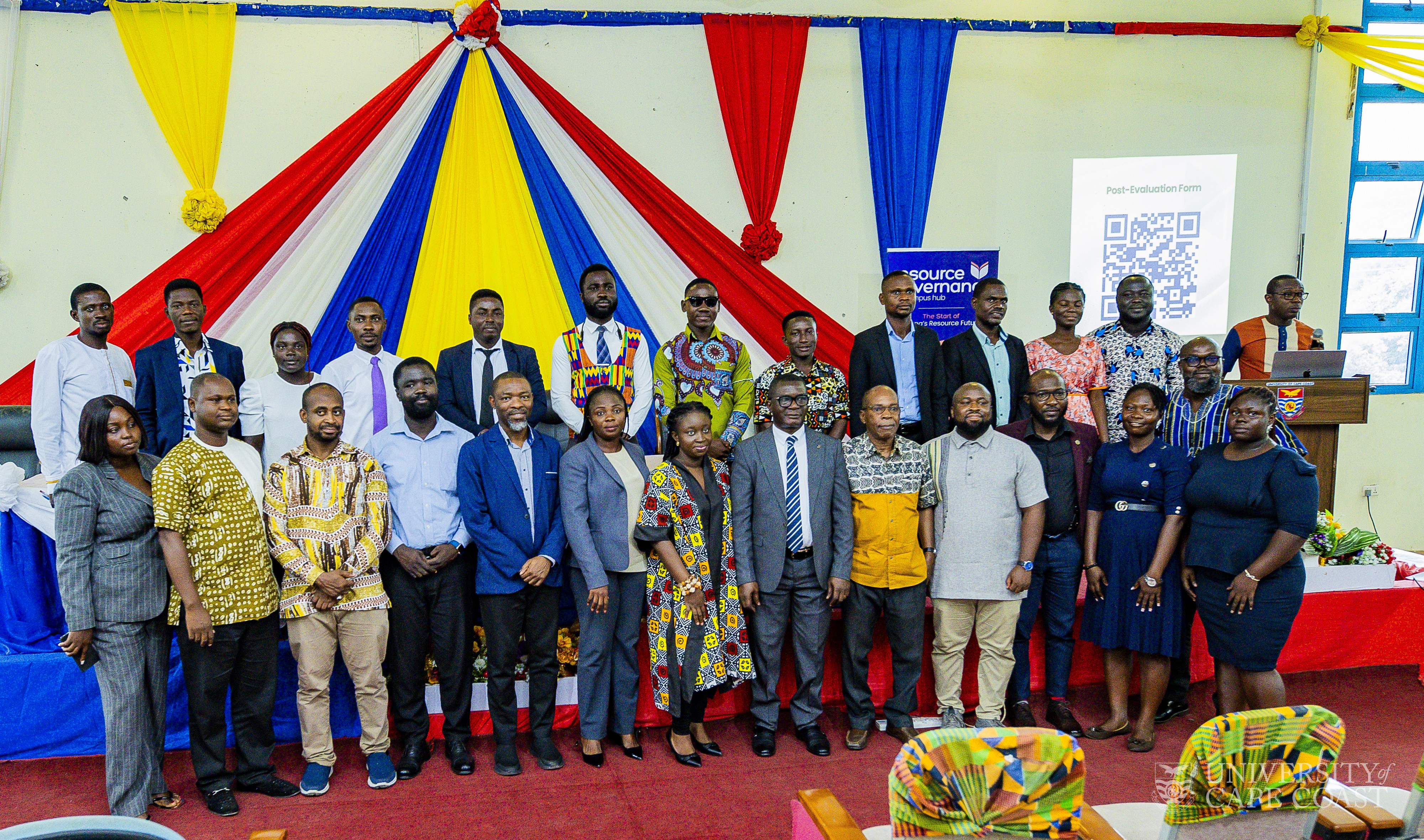The African Centre for Energy Policy (ACEP) has inaugurated the Resource Governance Campus Hub at the University of Cape Coast (UCC).
The initiative, which will be under the Institute of Oil and Gas Studies, UCC, is aimed at providing students with the requisite knowledge, skills, and ethical principles for effective resource governance and management, serving as a platform for intellectual discussions, research initiatives, advocacy, and collaborative projects.
This will further foster a deeper understanding of resource governance amongst students.
The Policy Lead for Petroleum and Conventional Energy at ACEP, Kodzo Yaotse, explained that the initiative was a boost toward ensuring good resource governance.
"The main essence is to ensure that we have a crop of active citizens that are concerned about what is happening within their space, that know the type of information they need to have to effect the change they want to see,” he said.
Kodzo Yaotse explaining a point at the event
He outlined a significant gap in tracking mineral revenue expenditures, pointing out that mineral revenue was often integrated into a broader government budget, making it difficult to assess its impact independently.
He noted that despite the tracing gap in mineral revenues, the extractive industries had had a considerable positive effect on the economy, playing a crucial role in enhancing foreign exchange earnings, improving trade balances, and fostering economic interconnections.
To him, it was about time all individuals get involved in the demand for accountability.
Mr. Yaotse indicated that: “It is not enough to sit at home and lament about how the state has not been able to translate resources into development. We are trying to urge students to take a more active part.”
The Senior Policy Analyst and Head of Monitoring, Evaluation and Learning at ACEP, Maybel Acquaye, noted, “If we really want to forge ahead as a country, we need to steer away from political debate to a more informed discourse where the conversation is not centered among a few elites at the top but brought down to the youth and the next generation."
She remarked that: “We will have students write opinion pieces on a lot of things they see within their communities, getting their voices out there. Students will be tasked to create their own initiatives on how to bring transformation to their communities. Imbibe in them a sense of responsibility.”
The Vice-Chancellor, Professor Johnson Nyarko Boampong, in an address read on his behalf by the Provost of College of Humanities and Legal Studies,Prof. Daniel Agyapong, envisioned the Hub as a vibrant center of learning, research, and advocacy in the University.
“ I see our students engaging in meaningful research projects that contribute to policy discussions, participating in national and international conferences, and building networks that will serve them throughout their careers,” he added.
According to him, the initiative was timely because of the growing global emphasis on sustainable development, environmental stewardship, and inclusive growth.
“Our students, as future leaders, must be equipped not only with technical knowledge but also with the critical thinking skills, the ethical foundation, and civic engagement capabilities necessary to navigate the complex landscape of resource governance.
Some participants in the event
He encouraged students to participate in the activities of the Hub to learn about the principles of good governance, transparency, and accountability to shape their future career.
The Vice-Chancellor called on staff to support the initiative by serving as mentors, providing technical expertise, and encouraging student participation.
He continued: “ We are committed to ensuring that the Hub becomes a model for other universities in Ghana and across the West African sub-region. Through our partnership with ACEP, we aim to contribute meaningfully to the discourse on resource governance and to produce graduates who will champion transparency and accountability in all sectors”.
“We will have students write opinion pieces on a lot of things they see within their communities, getting their voices out there. Students will be tasked to create their own initiatives on how to bring transformation to their communities. Imbibe in them a sense of responsibility,”he concluded.
The Director of the Institute of Oil and Gas, Prof. Edward Kweku Nunoo, in a remark, said the Institute would partner ACEP to ensure the sustainability of the Hub in UCC and asked students to join the Hub to make their voice heard as part of their contributions to nation building.
Source:Documentation and Information Section



